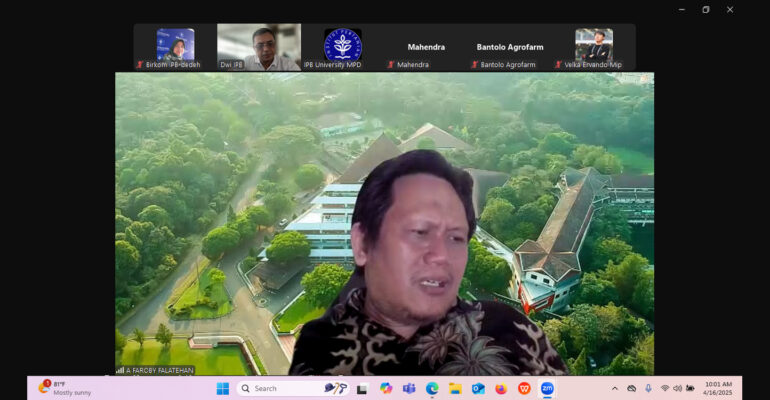IPB University Academician: Many Gapoktan Are Not Ready to Become Subsidized Fertilizer Distributors in 2025

The Farmer Group Association (Gapoktan) in South Sumatra Province (Sumsel) is considered not ready to become a distributor of subsidized fertilizers in 2025. This was conveyed by the Chairman of the IPB University Master of Regional Development Management Study Program, Prof Faroby Falatehan in a press conference conducted through Zoom Meeting, Wednesday (4/16).
Based on the results of a survey conducted by the IPB University team, Prof Faroby stated that the majority of Gapoktan in Sumsel had not fulfilled the seven main indicators of distribution readiness, such as legality, capital, administration, storage, and information technology.
“The problem of Gapoktan readiness in South Sumatra reaches 80-95 percent. They are only classified as ready if they get intensive assistance,” he said.
Similar results were also found in West Java and South Sulawesi. In fact, according to Prof Faroby, as many as 97 percent of Gapoktan in the three provinces were only considered conditionally ready, namely with coaching and institutional strengthening.
Furthermore, Prof Faroby warned that if gapoktan is still forced to become a distributor without adequate readiness, it has the potential to violate regulations. He refers to Law No. 19 of 2013 and Minister of Trade Regulation No. 4 of 2003, which stipulate that subsidized fertilizer distributors must have a legal entity and a Business Identification Number (NIB).
“If the gapoktan does not have formal legality, the distribution of fertilizer can be considered illegal and risks dealing with the law,” he added.
The government is currently working on reforming the subsidized fertilizer distribution system to make it more efficient by involving gapoktan directly. However, the unavailability of technical regulations and infrastructure readiness at the village level is a challenge.
In addition, survey results also show that most of the GAPOKTAN do not have storage facilities, good financial records, and human resources (HR) capable of managing the fertilizer distribution system professionally.
As an alternative solution, the government has started to initiate the transformation of gapoktan into village cooperatives. One example that has been realized is Gapoktan Sidomulyo in Sleman, which is now officially a Merah Putih Cooperative. This transformation is expected to strengthen legality and institutional capacity in managing subsidized fertilizer distribution in the future.
Prof Faroby stressed the importance of mentoring, training, and improving governance so that the distribution of subsidized fertilizers does not cause legal uncertainty or moral hazard.
“The government is advised not to rush to implement this system as a whole. At least six months are needed for trials, guidance, and evaluation of the readiness of each region,” he concluded. (dh) (IAAS/FMT)



